Iran says it is in indirect talks with Syria’s new government
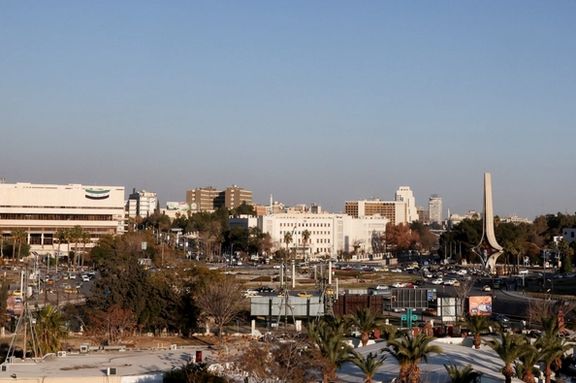
Tehran has exchanged positive messages with Syria’s new government, an official revealed, but will make its final decision on its future role in the country “at the appropriate time.”

Tehran has exchanged positive messages with Syria’s new government, an official revealed, but will make its final decision on its future role in the country “at the appropriate time.”
“We are monitoring the developments in Syria with deliberation and patience and will make our specific decision when the time is right,” Mohammadreza Raouf Sheibani, Iran’s special representative for West Asia, said in an interview published Saturday.
He confirmed the recent remarks of Syrian Foreign Minister Asaad Hassan al-Shibani about an exchange of “positive messages” between Tehran and Damascus following the overthrow of Bashar al-Assad’s government in December.
Iran's Shiite clerical government became deeply involved in Syria's civil war early in the conflict, sending regular and proxy forces to defend Bashar al-Assad's rule.
Al-Shibani, speaking at the World Government Summit in Dubai earlier this week, stressed that while Syria has received “clear and positive messages” from both Iran and Russia, these messages need to be translated into “a clear policy that makes the Syrian people feel reassured.”
Iran and Russia, Assad’s main backers during the brutal conflict that began in 2011, played key roles in maintaining his grip on power until a rapid rebel offensive last December forced him into exile in Moscow. Since then, both countries have sought to maintain influence in Syria while navigating the new political landscape.
Europe has taken a clear stance in supporting Syria’s new leadership, with French President Emmanuel Macron pledging assistance in countering terrorism and preventing the return of Iranian-backed militias. “The priority is ensuring that Syria does not become a logistical platform for militias linked to Iran, which pursue a regional destabilization agenda,” Macron said at a recent conference in Paris attended by key regional and Western powers.
Iran, which invested heavily in Assad’s survival—reportedly spending at least $30-$50 billion—now faces the challenge of recalibrating its strategy. Supreme Leader Ali Khamenei has vowed on multiple occasions to reclaim Iran’s influence in Syria, adding further tension to an already complex situation.
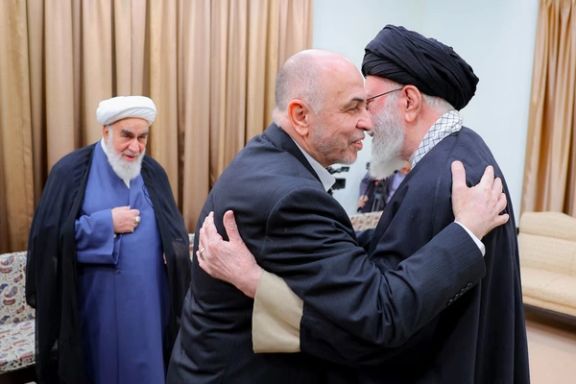
An ultimatum by US President Donald Trump to Hamas is doomed to fail unless Tehran faces a genuine threat and consequences for backing the group, Michael Pregent, a former US Intelligence officer and military adviser told Eye for Iran podcast.
“Tehran needs to feel under threat, and they need to feel pain,” said Pregent.
"What kind of pressure can the Trump administration put on Iran to get those hostages released? They just simply have to say, you are going to be held accountable for every hostage that's killed or delay in the release of every hostage."
The United States, Pregent said, should exert economic pressure on Iran, discourage Iraqi cooperation with Tehran and more directly confront armed affiliates in the region such as the Houthis in Yemen, Lebanese Hezbollah and Hamas itself.
"If the regime told Hamas to release, they would release," Pregent said, referring to Iranian authorities and Israeli hostages Hamas seized in an Oct. 7, 2023 attack.
Trump on Monday warned of dire consequence if all the remaining hostages are not released on Saturday.
“As far as I’m concerned, if all of the hostages aren’t returned by Saturday at 12 o’clock – I think it’s an appropriate time – I would say, cancel it (ceasefire) and all bets are off and let hell break out,” the president told reporters in the White House.
Trump’s comments represent one of the most direct threats aimed at the Iran-backed group by any Western leader. He also says he seeks to seize and control Gaza, the coastal enclave that has been run by Hamas.
The Islamic Republic provides material, financial and ideological support to its Palestinian ally. According to a 2020 US state department report, Iran provides about $100 million annually to Palestinian militant groups, including Hamas.
Qatar's role
Pregent, who served under former director of the Central Intelligence Agency, General David Petraeus in Iraq, describes Trump as a tough and effective leader.
The Republican President understands the Middle East, Pregent said, but added that some members of the administration are too close to Qatar.
“That funding either silences a critic or results in praise for what Qatar is doing. We hear these things like Qatar is doing God's work,” said Pregent. “When it comes to Witkoff, we know that they bought a property in New York for $623 million. That's in The New York Times. I'm not saying that he's bought and paid for.”
Steve Witkoff, once a prominent real estate investor, is the US Special Envoy to the Middle East, who played a pivotal role in brokering a major ceasefire and hostage exchange agreement between Israel and Hamas.
A New York Times report alleges that Witkoff was involved with two sovereign wealth funds when he bought and sold a Manhattan hotel in 2018 prior to working in government. The Qatar investment authority purchased the hotel for $623 million helping to secure a buyout for Witkoff and his partners.
The most senior leader of Hamas outside of Gaza was living in Qatar up until recently, but the political office of Hamas in Doha is now permanently closed, Qatar’s foreign ministry spokesperson told various Western-media outlets.
Qatar, a tiny island in the Persian Gulf, has become the world’s lead hostage-negotiator. The small energy-rich state, with the help of Egypt, has been working with the US and Israel on a Israel-Gaza ceasefire for much of the conflict.
In 2023, just before October 7, Doha brokered a deal between Washington and Tehran that saw the release of US hostages inside Iran in exchange for the release of 6 billion to Tehran in frozen assets.
“You cannot succeed if you continue to play into the hands of the arsonist playing firefighter, you know, in the role of Qatar. If you really want to get a release, Tehran needs to be involved,” said Pregent.
Pregent said while Iran influences Hamas, Qatar influences the US.
“What I'm saying is it’s pretty hard to criticize Qatar when they buy you out of a financial situation that you are in. That's what I'm talking about with this influence,” added Pregent.
If Doha continues to lead negotiations, and Tehran doesn't face consequences for its support of Hamas, Pregent insisted, there can be no progress to end the conflict.
"If that doesn't happen, then nothing."
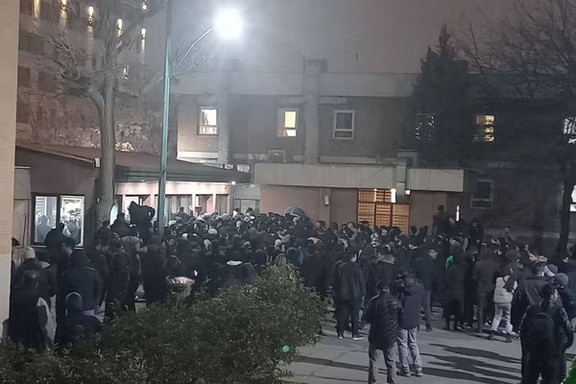
Security forces arrested at least four students at Tehran University's dormitory after students held a protest earlier on Friday against the recent murder of a classmate by thieves.
Universities have been a frequent flashpoint anti-government unrest in Iran and students say the murder shows authorities are not providing sufficient safety.
"Tehran University dormitory is currently under siege ... More than 100 plainclothes officers are stationed at the entrance to Tehran University's dormitory," the Amirkabir university newsletter reported on its social media channels on Friday.
The student newsletter reported that a student it named as Amir Hossein Gohari was beaten and detained by plainclothes forces, while three other students were arrested, but their names remain unknown.
Earlier in the day, Tehran University students staged a protest against the university's policies and the lack of student safety in response to the death of their peer.
Amir Mohammad Khaleghi, an undergraduate student at the university's business management department, was attacked by robbers earlier this week and died from his injuries.
Protesters at the demonstration chanted, "Nothing can wipe away the blood that has been spilled" along with "Death to Khamenei", a reference to Iran's Supreme Leader, along with other anti-government slogans, reported the student newsletter.
According to Iranian media, Khaleghi was attacked with a sharp weapon on Wednesday evening by thieves in a neighborhood near Tehran University's dormitories.
In a sign of how serious authorities view the student unrest, government spokesperson Fatemeh Mohajerani urged calm on Friday and respect for authorities.
"We invite everyone to keep the path of dialogue open while maintaining calm," she said in a post on X following the student protest earlier in the day.
The Amirkabir newsletter reported that some students plan to continue their protest in a sit in in the courtyard of the university until the morning despite the presence of security forces.
Tehran University said in a statement on Thursday that the murder occurred outside its university grounds, further angering students.
"Since calls were made to the university about this incident, we inform you that this student's death occurred outside the university grounds, near Gisha Bridge," the statement said. "The university officials, upon receiving initial reports last night, are diligently following up on the matter."
The National Student Guild Council criticized the university's response, saying, "University officials shamelessly claim that the murder occurred outside the university grounds, and not only are they unaccountable for the lost life, but they also impose the responsibility of following up on the students."
The investigation into Khaleghi’s death is ongoing.
Iran’s Judiciary media center announced that, following the report of a robbery involving a Tehran University student, which led to his death due to the injuries sustained, the Tehran Prosecutor's Office immediately ordered the opening of a case in the special prosecutor's branch.
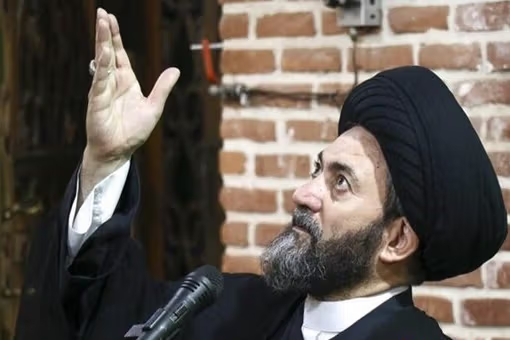
A senior cleric appointed by Iran's Supreme Leader suggested in a sermon on Friday that US president Donald Trump was the one-eyed Islamic equivalent of the Antichrist prophesied to menace humanity around judgment day.
"He is completely one-eyed, and this is a sign of the end times," Seyyed Hassan Ameli told congregants in a sermon for Islamic Friday prayers according to the Tehran-based Didban News website.
Ameli is Ali Khamenei's representative to deliver the weekly sermon in the large northwestern city of Ardabil, and Friday prayer-leaders' remarks reflect official thinking in the theocracy.
In Islamic eschatology, a figure called Dajjal is a false messiah who will emerge in the end times, spreading corruption and misleading people with false promises of power and prosperity before being ultimately defeated by a righteous messiah.
His description in Islamic scripture as "one-eyed" has been interpreted to refer to his deception and ability to manipulate others for personal gain.
"The new US president has a completely one-sided view," Ameli said.
"He sees the world purely through a materialistic lens and openly declares that America is a business corporation."
"He covets wealth wherever it exists—whether it's Middle Eastern oil, Syrian oil, or Ukraine’s minerals," he continued.
Ameli further criticized Trump’s approach to foreign relations, saying that the US president has used intimidation tactics to pressure countries into submission, expecting Iran to comply in the same way.
Reimposing the so-called "maximum pressure" campaign of sanctions on Iran from his first term this month, the hawkish Republican president has said he much prefers a deal on Iran's disputed nuclear program over any military attack on the country.
Trump then shocked Mideast leaders by saying he planned to seize and re-develop the Gaza Strip into the "riviera of the Middle East" after a 15-month incursion by US-allied Israel flattened much of the coastal enclave.
Khamenei appeared to promptly blast that idea, rejecting Trump's territorial ambitions as a fantasy.
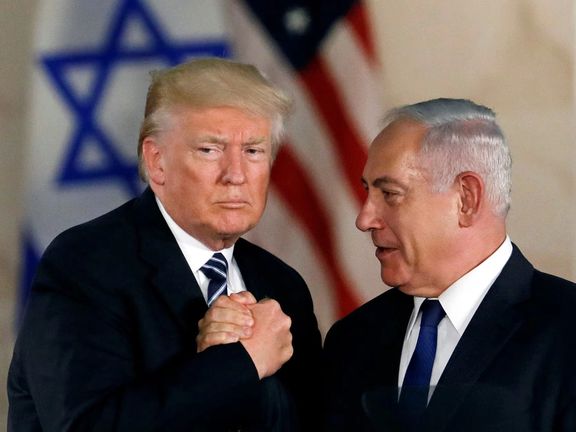
The United States and Israel have reached a "full understanding" on how to face Iran's nuclear program even if no deal is reached, the Al-monitor news website said citing an Israeli diplomatic source as saying.
The Wall Street Journal and The Washington Post reported this week citing US intelligence assessments from last month that Israel saw an opening for an attack on Iranian nuclear sites as early as the first of this year.
Israel is basing its assessment, the papers reported, on Iran's weakness after an Oct. 26 Israeli attack knocked out much of its air defenses and a greater perceived receptiveness to military action from top backer the United States.
Israeli Prime Minister Benjamin Netanyahu visited Washington this month and told US President Donald Trump at a White House Press conference that the two leaders "see eye to eye" on the danger posed by Iran after Tehran tried to kill them both.
The two hawkish leaders who have made facing down Iran a central part of their foreign policy, appeared close and said they ruled out Iran getting nuclear weapons.
Iran denies seeking a weapon but Israel says they are lying and seek a bomb to destroy the Jewish State.
"The prime minister is in a win-win situation," Al-Monitor quoted a Netanyahu associate as saying.
"If Trump achieves a nuclear agreement with Iran, it can be assumed that it will be a much better agreement than Obama's agreement, and Netanyahu believes that a large part of Israel's demands for such an agreement will be fulfilled thanks to its cooperation with the United States," the source added, speaking on condition of anonymity."
Trump signed a directive restoring the so-called maximum pressure policy on Iran of his first term and warned of "catastrophic" consequences if Tehran does not make a deal on its nuclear program.
Shortly after he said any reports of a devastating US-Israeli attack on Iran were "greatly exaggerated". Iran's Supreme Leader still promptly ruled out talks with Trump, saying they would be "neither wise, intelligent nor honorable."
The Netanyahu associate cited by Al-Monitor said US forces would help any Israeli attack on Iranian nuclear sites if talks fail.
"In this case, the gates of hell will be opened for Iran, but this time really. Trump will give Netanyahu the green light, and the Americans will not stand idly by, but will help Israel with whatever it takes for such an attack to succeed."
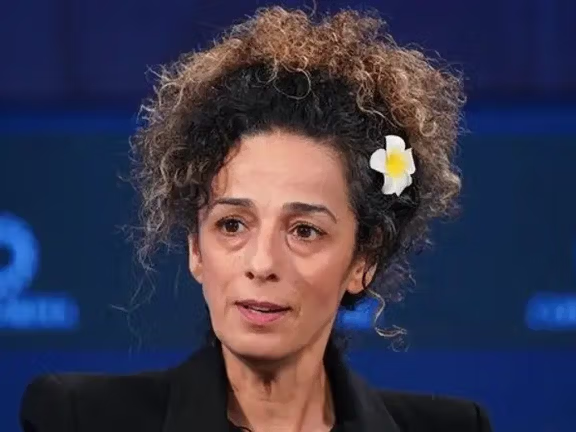
Negotiating with the Islamic Republic gives Tehran's rulers legitimacy and betrays the people of Iran, exiled journalist and activist Masih Alinejad said on Friday.
"Supporting the Islamic Republic in any form, through negotiations or financial relief, betrays the Iranian people and strengthens a dictatorship that will never reform," she said in a post on X.
"Western policymakers must learn from past mistakes," she added in a shark rebuke to the idea of talks mooted by US President Donald Trump.
"The 2015 nuclear deal (JCPOA) failed because it provided a financial lifeline of billions of dollars to the regime, which it spent on its military and security forces rather than improving the lives of ordinary Iranians," she added.
Trump pulled out of that international deal in 2018 and imposed his so-called "maximum pressure" campaign of sanctions, which he renewed this month.
Still, Trump said he much preferred a deal over Iran's disputed nuclear program over any military action.
Alinejad, who is based in the United States, is a prominent voice advocating for women's rights and the overthrow of Iran's nearly 50-year-old theocracy. Iran's Islamic Revolutionary Guard Corps has plotted to kill her in exile, US law enforcement alleges.
She is in Germany for the Munich Security Conference, the premier annual forum for discussion of international security policy among top leaders.
For the third consecutive year, the organizers have excluded Iranian government representatives.
"I am pleased that Javad Zarif and Abbas Araghchi have been excluded from this conference despite all their efforts," she told Iran International in an interview on the sidelines of the conference.
"This is a positive step, but it is not enough. The West must take more fundamental steps to expel and isolate this terrorist government from all global arenas, which is certainly not an easy task," she added.
In a video post on X the previous night, referring to Iran’s exiled crown prince Reza Pahlavi's exclusion from the event, Alinejad said, "The exclusion of one of the opponents of the Islamic Republic from the Munich Security Conference is unacceptable."